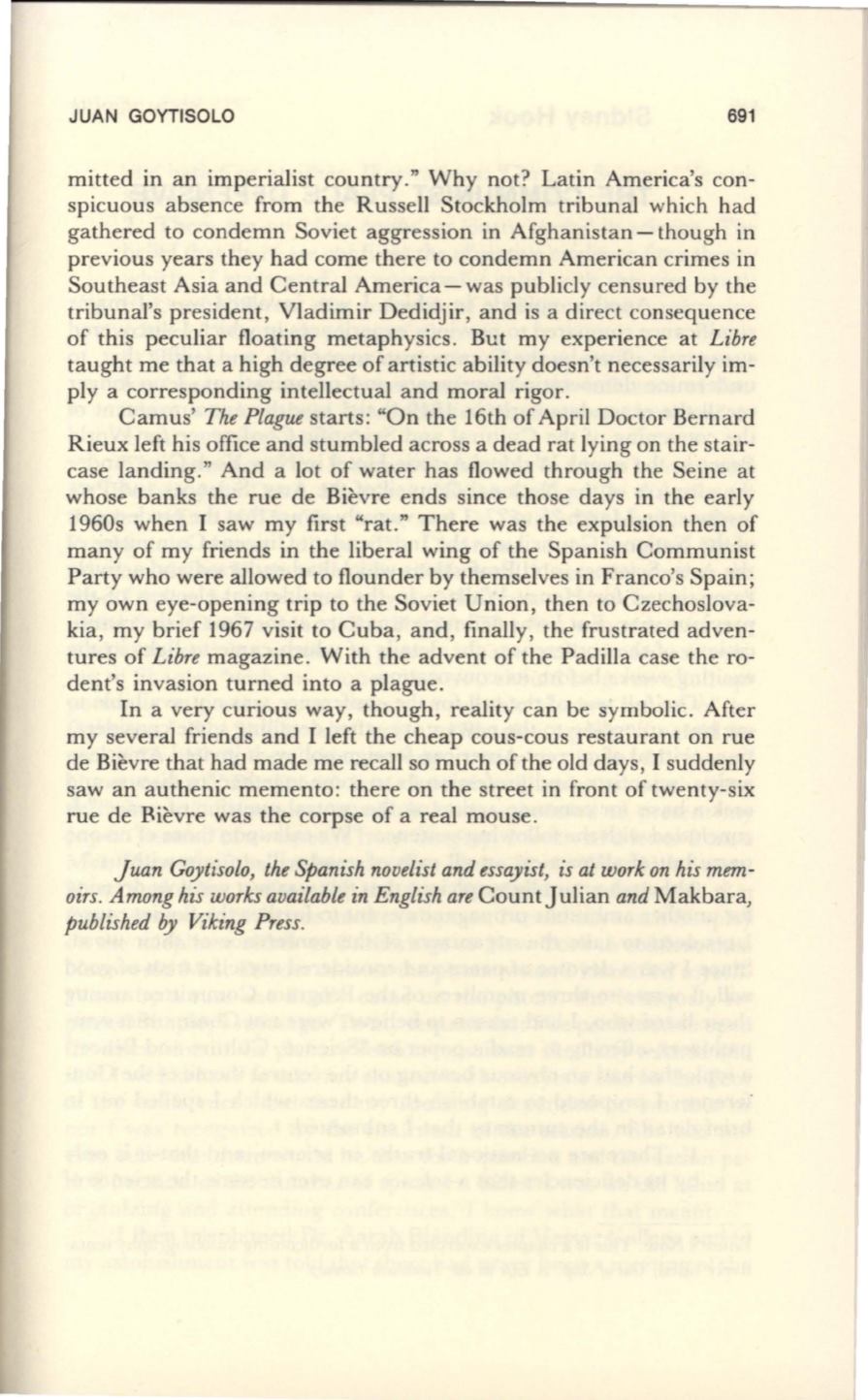
JUAN GOYTISOLO
691
mitted in an imperialist country." Why not? Latin America's con–
spicuous absence from the Russell Stockholm tribunal which had
gathered to condemn Soviet aggression in Afghanistan- though in
previous years they had come there to condemn American crimes in
Southeast Asia and Central America-was publicly censured by the
tribunal's president, Vladimir Dedidjir, and is a direct consequence
of this peculiar floating metaphysics. But my experience at
Libre
taught me that a high degree of artistic ability doesn't necessarily im–
ply a corresponding intellectual and moral rigor.
Camus'
The Plague
starts: "On the 16th of April Doctor Bernard
Rieux left his office and stumbled across a dead rat lying on the stair–
case landing." And a lot of water has flowed through the Seine at
whose banks the rue de Bievre ends since those days in the early
1960s when I saw my first "rat." There was the expulsion then of
many of my friends in the liberal wing of the Spanish Communist
Party who were allowed to flounder by themselves in Franco's Spain;
my own eye-opening trip to the Soviet Union, then to Czechoslova–
kia, my brief 1967 visit to Cuba, and, finally, the frustrated adven–
tures of
Libre
magazine. With the advent of the Padilla case the ro–
dent's invasion turned into a plague.
In a very curious way, though, reality can be symbolic. After
my several friends and I left the cheap cous-cous restaurant on rue
de Bievre that had made me recall so much of the old days, I suddenly
saw an authenic memento: there on the street in front of twenty-six
rue de Bievre was the corpse of a real mouse.
Juan Goytisolo, the Spanish novelist and essayist, is at work on his mem–
oirs. Among his works available in English are
Count Julian
and
Makbara,
published by Viking Press.


